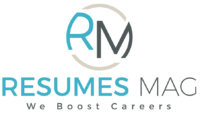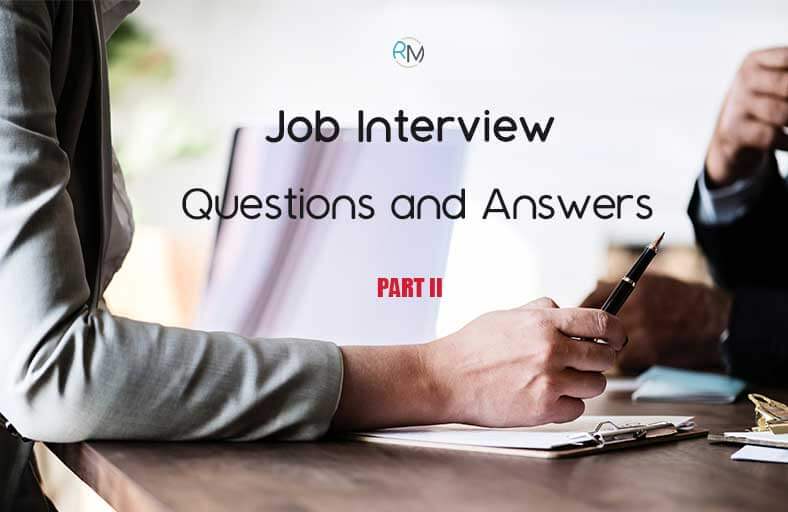Job Interview Questions and Answers, this is the 2nd part for our previous article Job Interview Questions and Answers – Part 1.
Job Interview Questions and Answers – Part 2
Today, we will bring the topic to a further notice; discussing more common questions in interviews, and showing the appropriate answers for it.
So let’s stat
11- How well do you work with others? Share some examples, please.
The job you are applying for might require many communications with others or not, but either way, chances are the HR will ask you that question, still. Companies prefer to hire someone easy to communicate with; that’s to prevent future issues in the workspace.
To answer that question, you shouldn’t just say you work well with others, but explain and show it. To do so, tell the HR about the preferred type of communication you prefer with others. Also, speak about how you communicate with someone you might not very like, and people in higher positions than you.
To give examples, before going to the interview, prepare by remembering all the situations where you were in a team and worked very efficiently, and things went smoothly between you all. Talk about these situations without much detail that the interviewer gets bored and lose attention.
Avoid talking about situations where you and your team got into a conflict. Or cases when you left the team without finishing the job at hand because of that. And avoid also talking all about yourself. Give some credit to the members of the group you’ve worked with them. And stay confident and positive.
If you are an entry-level employee, you can make use of projects you participated in during college years, or volunteer work; as it would be a piece of clear evidence for how will you work with others.
12- How do you handle failure?
Don’t ever say you have never failed. It is impossible, and it will show that you are either not challenging yourself in anything, or that you are showing off and lying.
The best way to answer this question is to talk about a previous failure, preferably an old one. You should have taken responsibility for the failure of the situation you are talking about it. Show how you handled it, learned from it and how you worked on self-improvement after it to avoid the same failure in the future.
13- How do you define success?
To answer this question, you must research the company you are applying for before going to the interview. Make sure you read their “mission” and “about”.
The HR person always expects to know a bit about your personality from your answer to this question.
Your answer must show motivation, determination, enthusiasm and shared a collaborative vision. Make sure your answer overlaps with the company’s mission. And how can you see that the job can get to the success definition as you see it.
However, make sure your answer is balanced. Your definition of success shouldn’t be all focus on a job only, that’s never the definition of success; there’s always another aspect to that. And also make sure your answer isn’t all about you.
Reading this article 20 Definitions Of Success, You Should Never Ignore from Lifehack can give you more thoughts.
14- What is your passion?
Interviewers don’t ask that question frequently; usually, you may find within an interview with big companies that carries excellent opportunities.
Answering that question allows you to show your enthusiasm, and share your hobbies. It shows you, beyond the technical knowledge and through it. The HR usually asks this to know what you will add to the work team away from your technical knowledge. Will you be someone they like being around? Would you be enthusiasm for others or not?
In your answer make sure to show your determination to your passions. Choose one passion for talking about which excites you. Choose one that isn’t related to the job preferably. And be sincere about your spirit, which will make the interviewer sense your genuine excitement.
15- What are you looking for in your next job?
There is a great idea to help you pass this question safely, and could give you that strong impact you need to have. What is it? You prepare two lists before the job interview; one for the job requirement, and the other for your interests and goals. The overlap between the two lists would make your answer.
Make your answer shows what you will benefit from the job that comes along with your interests and goals. And even though you might want to show you are perfect for the position, avoid lying, as they can quickly tell when the interviewee is dishonest.
16- Would you take your work home?
This one is a little bit tricky. The employer might ask you the question to know whether you are a balanced person who makes time for his life outside of work or not, or ask you to tell if you can do the job by yourself and be committed to it till you finish it.
But either way, tell the truth. Don’t say that you will be happy to take work home if that will stress you and make you unhappy eventually. And don’t just say no too. The best answer is to say that you prefer not to unless necessary because you like to make time for your family, hobbies, friends, and your life outside work scope.
17- Are you overqualified for this job?
It is a tricky question too. You don’t want to look like you’re not suitable for the job, nor you’re too arrogant. So, your answer has to be just right.
Mostly, if the interviewer asks you this, he does think you’re a bit overqualified. Or at least, you’d take it like that. So, the best way to reply to this is by saying that you’re flattered that he might think that, but you don’t see that.
Show that you’re just right for the job, and even if you’re a bit overqualified, it is for the benefit of the company and that you’ve your reasons to apply for this specific job. The interviewer will probably ask you for these reasons afterward, so be prepared.
18- What are your career goals?
First of all, you’ve to prepare your career goals before going to the interview; this includes the short-term, long-term ones.
Experts considered the best formula to answer this specific question; by listing your short-term goals first then gradually moving on to long-term ones. Explain the actions you’d take to reach these goals, and how you plan to do them, and the reason behind each goal.
Would it make you successful? Would it make you socially happy? Whatever the reason; related to work or not. However, try to convey that you won’t leave your employer anytime soon and that this job will help you reach these goals. And whether it is in your mind or not, avoid talking about salary in your goals.
19- How would you describe your work style?
The reason behind asking this question is for the employer to know whether you will fit in well with the company’s culture and the job or not. And whether you’re self-aware enough of your work-style to share it and communicate with others.
You’ve to be honest in your answer, don’t over-qualify yourself as the perfectionist for work. Avoid clichés like “hard-worker” and “good communication skills” and all. Just describe how you prefer to work, and stress on your better sides, your vision, and commitment to finishing work at hand.
20- Do you ever get angry at work? How do you handle it?
Don’t ever say you’ve never got angry at work. That’s also impossible. When HR mentions the term angry, they mean losing control. I highly doubt that you’ve never lost control of your temper during working on a project or something. Stress tends to make people angry.
So how would you answer this question without looking like an unwelcomed team member?
The best way is to admit that you sometimes get angry. Yes, but in rare situations, that doesn’t happen a lot, and there was a massive reason for your actions. You can tell an instance where you got angry, but don’t make it reflect poorly on you.
Choose the situation you will talk about it. At first, show the reason behind your frustration, and make the case work-related not personal. Keep it brief and to the point.
And most importantly, avoid heated words; don’t keep saying “angry” and “hate” and words alike. Talk with least emotion as you can, and use words like “upset” or “disappointed”. By doing that, it will show that you didn’t lose control in the situation, and handled it wisely. And the last of all, explain how you got to a solution to the problem.
But, if you are that cool guy that doesn’t usually get angry, you should tell the truth about that. Even in this case, you’d need to give an example just like the case above to back this truth.
21- What can you contribute to this company?
This question needs preparation. Its answer is very related to the career goals question (No. 18). As we stated before, you must read about the company and its vision and mission. Search for what the company wants to reach or achieve in a couple of years.
After you do so, see how your goals and qualifications can help in making the company reach its mission. Then in the interview, show what you’ve to offer for the company, and how your skills and goals will make you able to do so. It would be a great move to show achievements you’ve done in the past that help about your story.
22- What challenges are you looking for in your next job?
You have to take four points into your consideration while answering this question.
First, show your skills, especially the new ones, which you are looking for work to use them efficiently.
Second, Show your motivation and how you like challenges and up for it. Whatever the difficulty, you will put your mind to work hard to get past them, to start facing new challenges.
Third, Connect your answer to the job at hand, and how this job would have the challenges you need.
And the last of all, as always, you need to show examples for your motivation and accepting challenges coming in your way, or even searching for next challenge yourself.
Final words
Let’s close this article by saying that preparing for interviews can be crucial for your career and life, and both of them deserve from you all the time to be ready.



0 thoughts on “Job Interview Questions and Answers – Part 2”